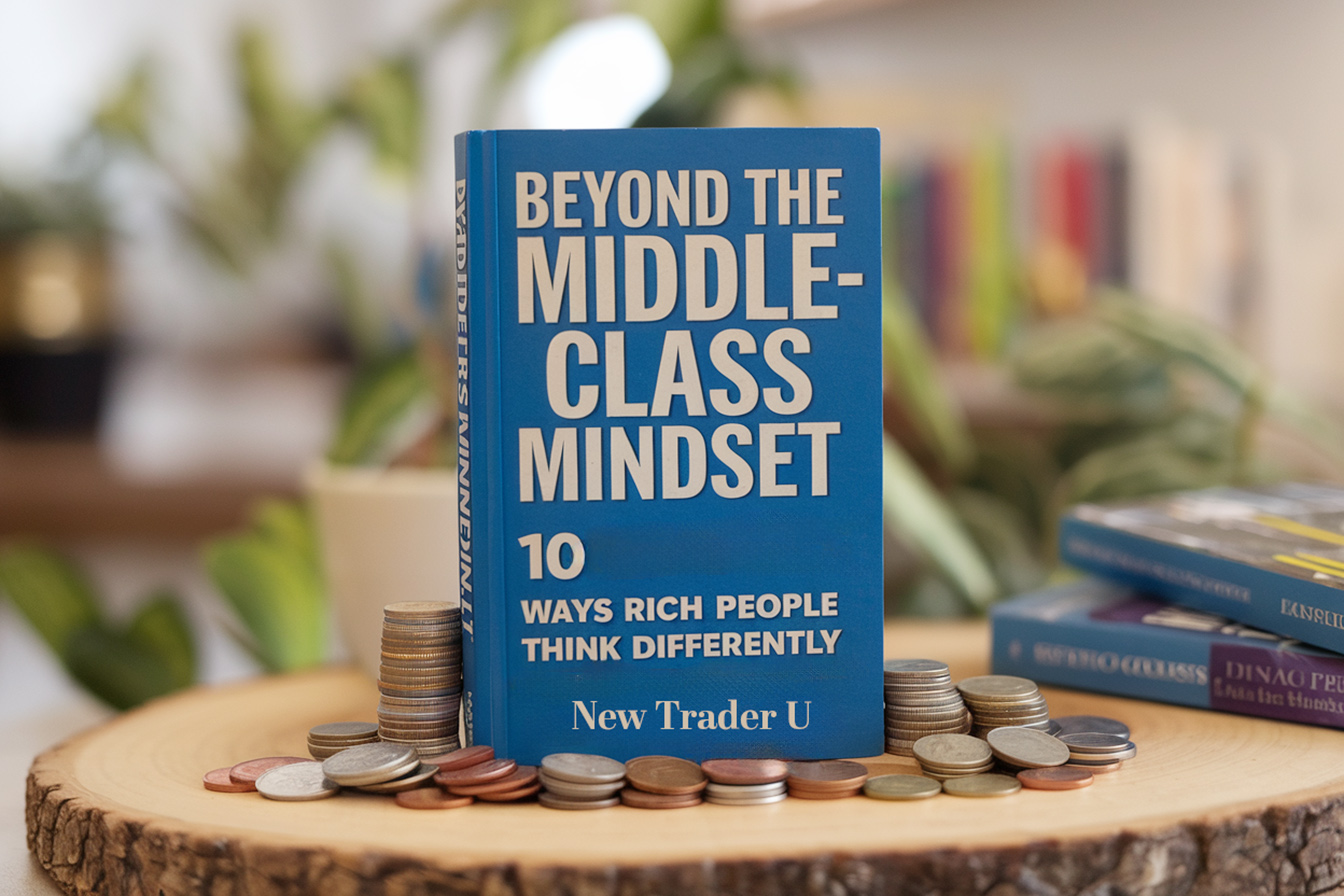The gap between middle-class and wealthy individuals extends far beyond bank account balances. The fundamental distinction lies in their different approaches to money, opportunity, and success.
Let’s explore these crucial mindset differences that separate the wealthy from the middle class and how understanding them could transform your financial future.
1. Risk vs. Reward: Why the Wealthy Choose Opportunity Over Safety
While middle-class professionals often prioritize job security and steady paychecks, wealthy individuals actively seek opportunities that others might consider risky. The rich view risk through a fundamentally different lens than the middle class.
Wealthy individuals recognize that actual financial growth often requires stepping beyond conventional security. They understand that entrepreneurship and business ownership can offer unlimited upside potential compared to the capped income of traditional employment.
This doesn’t mean they embrace reckless gambles – instead, they develop sophisticated risk assessment frameworks, carefully weighing potential returns against possible downsides. The key distinction lies in their ability to differentiate between calculated risks that drive wealth creation and blind gambles that could lead to financial ruin.
They methodically analyze opportunities, considering market conditions, timing, and resource requirements before strategically moving toward greater potential rewards.
2. Playing the Long Game: How Rich People Plan for Future Wealth
Wealthy individuals view time as an ally in wealth creation. Instead of seeking quick wins, they focus on strategies that compound over years or decades. Consider real estate investment: while many middle-class investors hope for quick property flips, wealthy investors often hold properties for 10-15 years, benefiting from appreciation and rental income.
This long-term perspective shapes everything from investment choices to business strategies, prioritizing sustainable growth over immediate gains.
3. Failing Forward: Why Wealthy People Embrace Their Mistakes
For the wealthy, every failure represents a valuable data point. When Elon Musk’s first three SpaceX launches failed, he didn’t retreat – he analyzed each failure, refined his approach, and eventually succeeded.
Wealthy individuals treat setbacks as expensive education rather than devastating losses. They systematically examine what went wrong, adjust their strategies, and apply these lessons to future ventures. This approach transforms failures from career-ending events into stepping stones toward success.
4. The Power of Leverage: Working Smarter, Not Just Harder
Wealthy individuals understand that personal effort alone has limits. They leverage other people’s time, money, and expertise to multiply their impact.
A successful real estate developer doesn’t personally manage properties – they build teams, use bank financing, and create systems that scale their business. This approach to leverage allows wealthy individuals to grow their assets exponentially rather than linearly.
5. Your Network is Your Net Worth: Building Relationships Like the Rich
Wealthy individuals treat relationship-building as a critical business strategy. They attend industry conferences, join professional organizations, and cultivate meaningful connections.
These relationships often lead to joint ventures, investment opportunities, and valuable partnerships. They first focus on creating value for their network, knowing that opportunities naturally follow strong relationships.
6. Never Stop Learning: The Wealthy Person’s Education Never Ends
While formal education ends for many, wealthy individuals relentlessly pursue knowledge, data, and understanding of new technology.
They regularly consult with experts, attend specialized workshops, and stay current with industry trends. Despite his success, Buffett still spent several hours daily reading and learning. This commitment to continuous education helps them identify opportunities and avoid costly mistakes.
7. Abundance vs. Scarcity: The Mindset Shift That Creates Wealth
Wealthy individuals operate from a mindset of abundance, believing there are always more opportunities to create value and wealth. This perspective encourages innovation and collaboration rather than competition or jealousy.
When facing challenges, they ask, “How can we expand the pie?” instead of fighting over existing resources. They seek businesses that grow industries or create new technologies, sectors, or whole new product lines instead of competing with existing ones. This mindset shift fundamentally changes how they approach business opportunities and financial decisions.
8. Beyond the Paycheck: Why Multiple Income Streams Matter
Wealthy individuals rarely rely on a single income source. They might combine business ownership, investment dividends, rental income, and intellectual property royalties.
This diversification increases total income and provides security through economic fluctuations. Each income stream starts small but grows through careful nurturing and reinvestment. According to the IRS, the average millionaire has seven income streams.
9. Smart Money Moves: The Strategic Approach to Wealth Building
Wealthy individuals treat their finances like businesses, making strategic decisions about taxes, investments, and asset protection. They work with financial advisors, tax professionals, and legal experts to optimize their wealth structure.
This might involve strategic investment timing, tax-efficient asset allocation, and careful estate planning—approaches that compound wealth over time. They use professional tax advisers to optimize their financial behaviors and minimize tax liabilities.
10. See Problems, Find Profits: The Innovation Mindset of the Wealthy
Where others see obstacles, wealthy individuals see opportunities for innovation. They actively look for problems to solve, knowing that solutions can become profitable ventures.
When Brian Chesky and Joe Gebbia faced difficulties affording their rent in San Francisco, they recognized an opportunity rather than a challenge. In 2007, they decided to rent out air mattresses in their apartment to attendees of a design conference, coining the term “AirBed & Breakfast.” This initial venture laid the groundwork for what would eventually become Airbnb.
Conclusion
The transition from a middle-class to a wealthy mindset involves more than simple behavioral changes – it requires a fundamental shift in how you view opportunity, risk, and success.
Understanding these different thought patterns allows you to make decisions that align more closely with wealth creation and preservation. Start by identifying which aspects of your mindset might hold you back, then gradually implement these wealthy thinking patterns in your financial journey.
